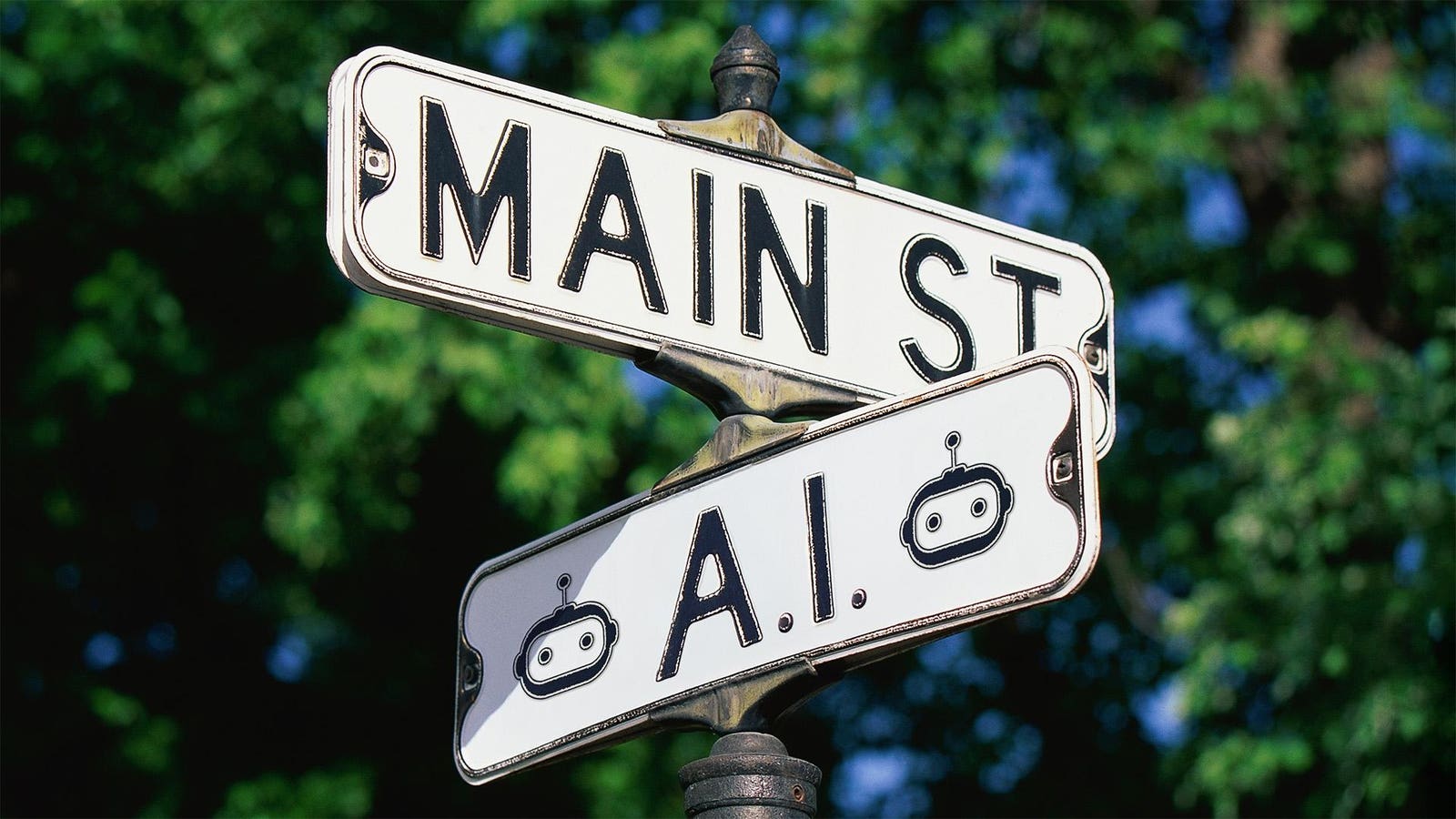Main Street’s not dazzled by AI’s big promises. Small businesses are testing it cautiously, leaning on features tucked into their daily software.
A little over a year ago, the U.S. Chamber of Commerce signaled the AI revolution was underway. A study from its Technology Engagement Center said 98% of small businesses were already using artificial intelligence.
“Small businesses that are all in on adopting AI and other emerging technologies are growing, competing, and achieving success on a larger scale,” said Jordan Crenshaw, a senior vice president at the Chamber. AI, according to Crenshaw, was letting small firms “punch above their weight.”
If all that were true, you might expect small businesses to look very different by now. That’s not what small business leaders are saying, though. Conversations with three business owners suggest something far more modest. They are using AI, but mostly when it comes bundled inside the software they already use. And when they’re touching it directly, it’s primarily just as a faster way to search the internet.
Rand Larsen, 29, runs Scalepath, a company that builds peer groups for small business owners to learn from each other. He says few of his members are building tools for themselves using AI. Most of the AI they use is invisible, built into software they already pay for.
One Scalepath member, a cleaning company, uses an AI workflow tool called Zapier to pipe Google reviews into ChatGPT, which drafts replies and posts them automatically. Larsen says it saves the business about 20 minutes a day. Not nothing, but hardly a revolutionary advancement. Another uses expense software that scans receipts and categorizes them automatically.
Larsen says tools like these save time, often an hour or less a day, but still require human oversight. The more ambitious attempts, like using AI to analyze tax returns or business documents, tend to fall apart under scrutiny. “It’s just not quite there yet,” Larsen says. “You still have to check its work.”
He’s seen the same thing firsthand. At Scalepath, Larsen used Replit, an AI coding tool, to build a new website and back-end system for a service that matches business owners with coaches. It saved him thousands of dollars in development costs. But even that, he says, needed human review to fix security flaws and polish the design. The only place he sees widespread direct use of tools like ChatGPT is as a substitute for Google searches.
Alex Jones has seen the same pattern.
Jones, 42, runs iRepairBermuda, a 12-person electronics repair and retail shop in Hamilton, Bermuda that he bought in 2015. Jones uses AI to write small internal software tools. One is a simple productivity app that tracks tasks and time spent on them. There are many apps that perform similar functions that he could just buy, but Jones wanted to customize his own.
The small businesses Jones knows use AI “as a glorified Google search.” The real productivity boost, he says, has been modest. He thinks the technology will keep improving but doubts it will spark an economic transformation. “It’s probably just gonna improve productivity by a few percent a year,” Jones says.
That skepticism hasn’t stopped others from experimenting.
In Flagstaff, Arizona, Fady Ebeid has found AI useful for speeding up routine tasks, even if it hasn’t reshaped his company. Ebeid, 31, has owned Pinnacle Building Services, a commercial cleaning firm with about 70 employees, since 2022. He uses a tool called Invideo to turn written training manuals into short instructional videos, saying younger employees absorb information better that way. It takes about ten minutes to make a video.
He’s also testing Clay, a data tool for researching sales leads, and has encouraged his sales staff to use ChatGPT to draft proposals faster. AI has sped up some tasks for Ebeid but hasn’t changed the nature of the business. “It’s helping,” he says, “but it’s not like our business is completely changed.”
For now, the big promises around AI haven’t shown up on Main Street. Most small businesses are using it only where it comes built into tools they already rely on, or as a quicker way to search for information. The widespread use of tools like ChatGPT, alongside Google’s own AI overviews, helps owners get answers in a flash, but it’s a double-edged sword: It’s become the go-to move for nearly everyone, siphoning traffic from websites, including their own, as people turn to AI-generated summaries instead of browsing online pages. AI is saving time at the edges, not redefining how their businesses run.
More from Forbes








